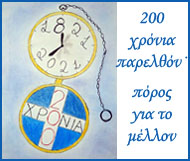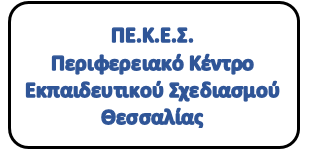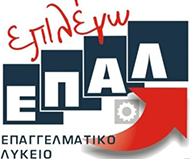Χαιρετισμός της Περιφερειακής Διευθύντριας Εκπαίδευσης κ. Ελένης Αναστασοπούλου στο 19ο Διεθνές Συνέδριο Βυζαντινολογίας στο Τμήμα Φιλοσοφικών Ιστορικών και Διεθνών Σπουδών του Monash University-Melbourne
Mr President, honorable Members of the Monash University,
Dear Participants,
in my capacity as Regional Director for Primary and Secondary Education of Thessaly, I would like to thank the Organizing Committee of this congress for their invitation to the Music School of Larissa to participate in the conference and play music as well.
As an educator and a Greek citizen, I feel very honored and pleased to extend a special greeting to the international conference of Byzantinology, which is being held today, since Byzantium, playing a bridging role between ancient and modern Greece, is the key to our decoding the psychological makeup of modern Greeks and determines their relationship with the Balkans, Europe and the world in all.
Just like Helene Glykatzi-Ahrweiler in her relevant book, one, and especially a Greek citizen, could wonder why Byzantium. Why especially nowadays?
Here are some answers to my most inward questions:
• Despite its multinational traits it has retained its Greek-speaking and orthodox state structure, thus preserving the essence of Hellenism.
• It is ever – present in our daily life. One attends church and listens to the anthem written in honor of the Holy Mother, we have friends called “Panagiotis” and relatives called “Vasiliki”. We all have icons at home and several sayings, still in use, date back to the era of Byzantium.
• Byzantium is not to be confused with the medieval period, as the Occident perceives it. In other words, its economy is based on financial transactions and one does not trade goods for other goods. Notions such as currency, clause of gold and administrative institutions are already familiar, while the holy inquisition is something unknown.
• The Occident cannot interpret the world, unless it deciphers Byzantium. What does the term “Europeans” consist in? According to Paul Valery, Europeans are those who are infused with the principles of the ancient rational thinking, have experienced the so-called Judaeo-Christian spirituality and have been influenced by the administrative machinery and the roman institutions. Athens, Jerusalem and Rome constitute the pillars of Europe, while Byzantium is the final product of all these three constituents. Consequently, Byzantium is inextricably linked to Europe, given that Byzantium and Athens share the same linguistic code, it derives its Christian character from Jerusalem and at the same time adopts the tenets of the roman administration.
• Many aspects of Greek modernism bear witness to its predominant presence. Fotis Kodoglou, who distinguished himself in the 1930s, seeks inspiration in Byzantium and the Orient.
• The significance of its civilization puts an end to the monocracy of the ancient Greek civilization. Monocracies should be done away with, since intercultural dialogues are preferable to them.
• When we listen to Kavafis recite the following poem, everyone’s soul, no matter whether they are religious or not, takes shape.
I love church, its liturgical fans,
its silverware, its candlesticks,
its lights, its icons, its altar.
When I enter a Greek church
with its incense scent,
its liturgical voices and symphonies,
and when I observe its magnificent priests,
with their serious movements and
their impressively adorned garb,
memories of our people’s honors
and our glorious Byzantium
come back to my mind.
(The Church, of the Poems 1897-1933, Icarus 1984)
I, along with the teachers and the students of the Music School of Larissa, wish you good luck with your conference.
Eleni Anastasopoulou
Regional Director for Primary and Secondary Education of Thessaly
Monash University
Melbourne
24/2/2017

























